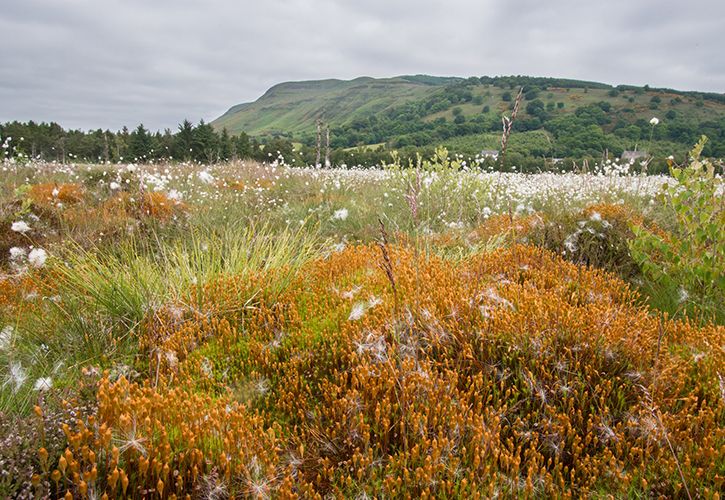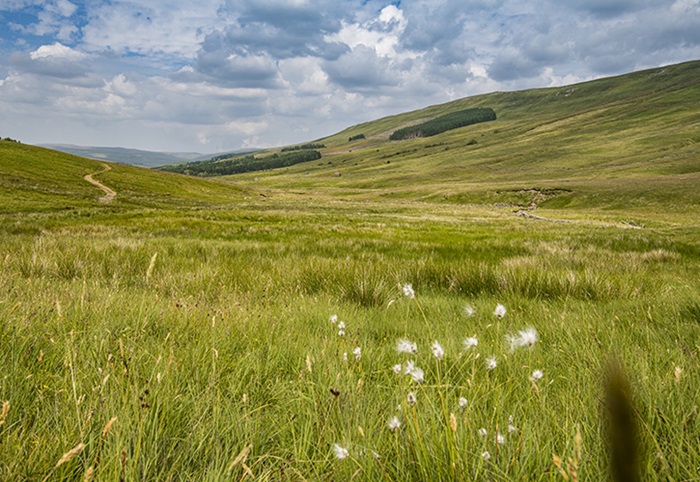UK DIY News
B&Q Commits To Selling 100% Peat-Free Plants By 2026

- The leading home improvement retailer, which already offers only 100% peat-free bagged compost, has committed to selling only 100% peat-free plants by 2026
- This achievement is part of B&Q’s ongoing commitment to help customers make more sustainable choices
- B&Q’s latest research reveals that almost three quarters (75%) of people are concerned about UK wildlife – up from 64% seven years ago, with 19% deliberately adopting the use of peat-free compost in the last seven years
B&Q, the leading DIY and home improvement retailer, has announced its commitment to selling only peat-free plants by 2026, building on its removal of peat from all bagged composts in 2023. B&Q is committed to helping customers make more sustainable choices and has a long-standing heritage in doing this for products used in gardens and outdoor spaces, from being the first UK retailer to remove neonicotinoids in 2012 to offering only 100% peat-free bagged compost since 2023.
B&Q has been a leading retailer in peat-free product offerings for over 30 years, having first launched a peat-free compost in 1991. As well as selling only 100% peat-free bagged compost since 2023, the retailer stopped selling 100% peat in 2008 and introduced a range of peat-free bedding plants in 2014.
B&Q continuously works with suppliers to improve the quality of its composts. Over the last few years, the business has partnered with suppliers to develop a high-quality 100% peat-free formulation under the GoodHome brand, formulated using coir (coconut fibres), and other ingredients to replace peat. The business also developed MamaTerra by Verve – a range of products made with ingredients sourced from nature which work with the ecology of the garden, helping to support a more resilient and fertile soil.
The Importance of Peatlands
B&Q recognises the importance of maintaining and restoring peatlands which are vital in protecting natural habitats, providing unique ecosystems for a diverse range of wildlife, and tackling climate change. They are the world’s largest land store of carbon, absorbing carbon and helping prevent flooding. However, when peat is extracted and added to our gardens, it breaks down quickly, releasing ancient carbon into the atmosphere and contributing to climate change.
Since 2022, B&Q has partnered with the Woodland Trust, the UK's largest woodland conservation charity, to support the restoration, protection and creation of native woodland at Snaizeholme, North Yorkshire. The project also includes the restoration of 279 acres of upland peatbog.

Image : Snaizeholme habitat, Jill Jennings, WTML
The Nature of Gardens Research
B&Q’s Nature of Gardens report, published in 2017, identified the enormous opportunity for UK gardeners to encourage and protect habitats in their own backyard, with the combined size of gardens in the UK being 500,000 hectares, an area equivalent to the size of the county of Norfolk. This year, B&Q has commissioned updated research to understand how the importance of nature and wildlife in UK gardens and outdoor spaces may have changed.
The 2024 research reveals that more Brits are concerned about the decline of wildlife than seven years ago. 75% of people said they are concerned or very concerned, compared with 64% in 2017, and the level of concern has also increased. More people now blame climate change, the use of pesticides and chemicals, and air pollution for the decline in wildlife than in 2017.
Two-thirds of people actively encourage nature and wildlife in their garden with half feeding the birds in their garden, and over half having trees. In the last seven years, 29% of people said they have planted more trees and shrubs and 18% have created a dedicated area to grow their own food. Nearly half of Brits say they now avoid using harmful chemicals and more people have native wildflowers in their gardens and outdoor spaces than in 2017.
As B&Q continues to enable customers to adopt environmentally conscious gardening methods and products, the report also reveals that 19% of people have deliberately started using peat-free compost in the last seven years, with a third (32%) now using only peat-free compost.
B&Q's Head of Sustainability, Sam Dyer, said: “At B&Q, we’ve been helping to protect and maintain natural habitats for years, through the responsible sourcing of products, as well as by helping our customers to encourage nature in their gardens through advice and products, ranging from pollinator-friendly flowers to water-saving water timers.
“We know how vital peatlands are in protecting habitats and preventing climate change, and are committed to offering only peat-free plants by 2026, building on our move to 100% peat-free bagged composts last year and our work through our partnership with the Woodland Trust to regenerate peat habitats at Snaizeholme in North Yorkshire.
“Our Nature of Gardens report demonstrated how important our gardens could be for nature and, while we’ve always known that people loved connecting with nature in their gardens, we were delighted to see from our latest research so much evidence of consumers increased interest in and action to encourage nature in their gardens and outdoor spaces, including the adoption of peat-free growing practices.”
To help increase awareness of the importance of peatlands to customers, B&Q has updated its ‘We need to talk about peat’ campaign, first launched in 2022 - Moving to peat-free | Greener gardens (diy.com)
For more information about B&Q’s peat-free products and responsible business commitments, visit DIY.com. For the 2017 Nature of Gardens Report see: Nature of gardens | Reports | Operations | Responsible Business | B&Q (diy.com)
Source : B&Q
Main image : Portmoak Moss, Summer Habitat, Paul Glendell WTML
I find the news and articles they publish really useful and enjoy reading their views and commentary on the industry. It's the only source of quality, reliable information on our major customers and it's used regularly by myself and my team.











































